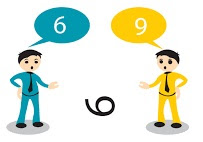Misconception about empathy and performance

One of the responses for last week's discussion on "empathy or looking at the things from other's views" is that if we start looking at things from other's views, that leads into lenience and, in turn, mediocrity in the performance, particularly in a professional environment.
We need to understand the slight difference between empathy and being lenient.
Empathy means we listen to other's views and recognize the cause in it. That does not mean that we are accepting the consequences as such.
For example, let us imagine a typical scenario in the workplace,
One of your junior colleagues on a particular day left the office early due to personal issues. He/she may be the authorized person for a financial transaction, and he/ she had not delegated the task to anyone on that day. Due to his/ her absence, the important financial transaction did not happen, which affected your organizational performance.
In this scenario, as a manager/leader, what choices you had the next day when the junior colleague reported the duty?
Choice 1:
You might have displayed your dissatisfaction with the performance without listening to his/ her situation. In this process, both of you experienced negative emotions or hurt personally.No learning from low performance.
Choice 2 :
You might have listened to personal issues, and both of you felt sorry about the performance. In this process, you are lenient and accept mediocre performance.
Choice 3:
You might have listened to personal issues, acknowledged it and you might have assertively conveyed your dissatisfaction and his/ her lack of delegation to the work. You made him/ her responsible for not completing the task.He/she might have learned from the mistakes.
Choice 3 is the appropriate method of understanding others and ensuring the right management process in place.
Most of the time, we are witnessing either choice 1 or 2 in which mediocre performance is encouraged.
i recall an incident that happened to me some years back. I drove my car first time in a new city and violated the signal as I was not familiar with the signal points and free left etc. A traffic policeman stopped me and got my license. I briefed him about my first-time driving and lack of awareness about the signal points. He listened to me and advised me to be careful in city driving. But he was firm to charge me fine as punishment and I also paid. In my view, the policemen were very empathic about my ignorance but, at the same time, firm on his duty. That is what required for the people who are at the commanding level as a manager or leader. Just imagine if the policeman displayed choice 1 or choice 2 behavior, then we both were not doing justice to ourselves as humanity consideration or duty consciousness.!
The point is being empathetic does not lead to lenience; you need to be firm on your role as a leader in a professional environment for ensuring performance!







